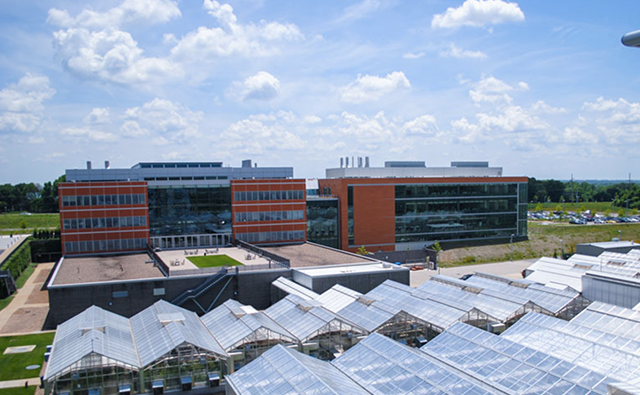Industry News, Fungicides, Agriculture & Feed
Peptyde Bio targets high costs and chemical-resistant pests with new bio-fungicide platform

Industry News, Fungicides, Agriculture & Feed

Skyrocketing costs and supply chain disruptions have left farmers with a limited and rather expensive supply of traditional agrochemicals this year. Coupled with a need to reduce environmental footprint by lessening reliance on chemicals, this has widened the opportunity and demand for biological-based pesticides, fungicides, and other non-traditional crop protection products.
Poised to take advantage of this is Peptyde Bio, a company leveraging the power of peptides — small proteins that plants produce in response to environmental stresses — to enable greater crop protection and yield.
Peptyde Bio is the first company to emerge from the Danforth Technology Company, a venture formed this year by the Donald Danforth Plant Science Center to launch more agtech startups from the Danforth campus in St. Louis, Missouri.
Tom Laurita, CEO of the DTC and interim CEO of Peptyde Bio, tells AFN that the company’s technology that finds and designs anti-microbial peptides for bio-fungicides could be ″a game-changer″ in combatting pests and crop disease in the future.
Antimicrobial peptides (AMPs) are small proteins with antibacterial, antiviral, and antifungal properties. They are found in a wide variety of lifeforms, including plants and humans, and are already being tested in the medical world.
Peptyde Bio’s technology platform discovers, designs, and characterizes novel AMPs that could complement or replace traditional chemical fungicides.
Laurita explains that 20 years of Danforth Center research on antimicrobial peptides, combined with the current opportunity for the technology in agriculture, made Peptyde Bio an appropriate choice as DTC’s first company to launch. Danforth also owns a substantial patent portfolio that’s based on years of research done by one of the founding PIs of Peptyde Bio.
″Inside the Danforth Center, there’s a proof-of-concept fund that exists for PIs that have promising technologies,″ he says. ″The underlying tech that has become Peptyde Bio applied for and received two of those proof-of-concept grants.″
″As the CEO of DTC and the former CEO of NewLeaf Symbiotics, this is a related area and I was pretty sure this was a promising opportunity just from my own understanding of the market,″ he adds. ″It’s the right time and the right place for Peptyde Bio.″
Startups developing biologicals raised just over $892 million worldwide in 2021, according to data from AgFunder — double how much they raised the previous year.
For Peptyde Bio, the issue of resistance in pests is also driving opportunity. ″The US EPA is highly concerned with this,″ Laurita says of the problem of more pests developing resistance to traditional fungicides. ″Some of the pesticides that are used are similar enough to anti-fungals used in human health treatment that there is a danger of development of resistant fungi affecting humans as well.″
He calls antimicrobial peptides ″a whole new class of anti-fungals that are much less likely to engender the development of resistance in the pathogens.″
″Synthetic chemical fungicides that are currently used are toxic to the environment, and their overuse has spurred the evolution of resistance to these chemicals in many fungal pathogens,″ he adds. ″AMPs are a safe alternative and/or complement to synthetic chemicals.″
So far, Peptyde Bio has hired four additional researchers and is also experimenting with the creation of an AI-enabled predictive platform that could design peptides to address specific needs in the market. ″It’s a cutting-edge tool that doesn’t really exist right now,″ says Laurita of the development.
In the meantime, the company expects to raise pre-seed funds in the coming months.
″The future of AMPs in ag includes the use of artificial intelligence (machine learning) to predict and design AMPs,″ says Laurita. ″Peptyde Bio and others are working in this direction.″